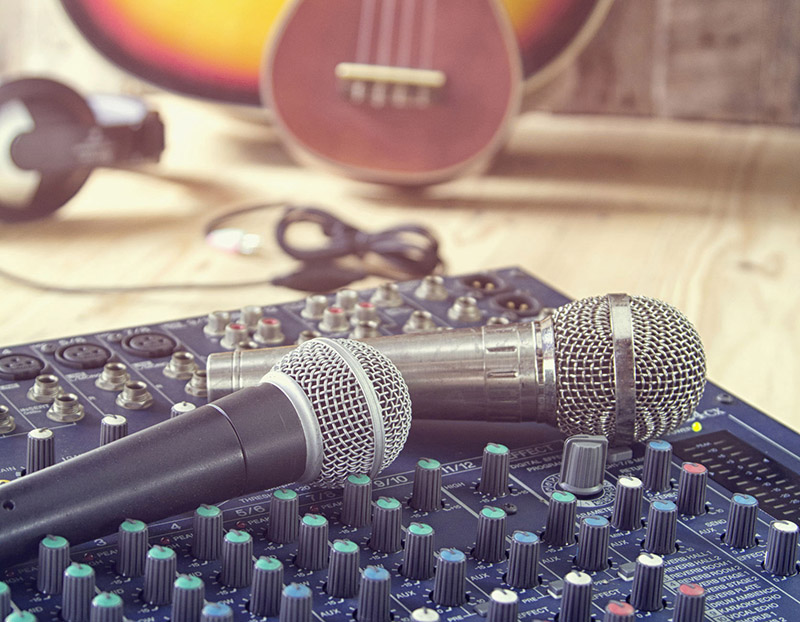Community, Leadership, Experimentation, Diversity, & Education
Pittsburgh Arts, Regional Theatre, New Work, Producing, Copyright, Labor Unions,
New Products, Coping Skills, J-O-Bs...
Theatre industry news, University & School of Drama Announcements, plus occasional course support for
Carnegie Mellon School of Drama Faculty, Staff, Students, and Alumni.
CMU School of Drama
Thursday, April 23, 2020
Compare & Contrast: Differences In the Approaches To Live And Studio Engineering
ProSoundWeb: The realm of the audio engineer is a broad area encompassing recording, radio, theatre, film, sports, television, live music and public speaking, and while all of these disciplines require a similar core skill set, they all differ in the way that these skills are applied.
Subscribe to:
Post Comments (Atom)

5 comments:
This was a really interesting article to read about the differences between live sound and studio sound and how to go about engineering for both. The main difference really is that in live sound the music is the same and the environment changes, while in studio sound, the music changes while the environment is the same. For a sound engineer switching from one medium to another, realizing that difference and how the skills change slightly is needed in order to succeed in both areas. In live sound, the engineer has less control over the quality of the mix due to the reverb the environment naturally produces. In a studio, the engineer has more control over the quality of the mix as the environment was created specifically to record music. However, as explained in this article, there are a multitude of ways to overcome difficulties in each area, such as using subtractive EQ practices in live sound, versus additive EQ practices in the studio. A very informational article that has a lot of practical uses for sound engineers.
I read this article because I don’t know much about sound but I feel like I learned something new. I always thought that live sound and studio sound were very different in terms of engineering. But it makes sense they have more commonalities that I think. However, I did learn that the difference is that the sounds in live remain the same but it’s the environment that affects it and changes it. On the other hand, in the studio, the sound changes while the environment is the same. (This reminds me of the independent and dependent variables in science experiments.) As a result, the engineer would have less control over the quality of the music if it was live in an open space because of reverb. Contrastly, engineers in the studio have more control, because the studio is literally created to record and make music. Although the techniques used to manipulate live sound and studio are slightly different, they seem to be based on the same principles of sound mixing.
Well, I can’t say I am exactly interested in the sound industry, but this is my one Covid-19 related article of the week so here I am. Something you do not often consider is the difference between the live sound engineer and the recording sound engineer and this article helps illustrate this to a reader. They talk about the differences in channel processing and some other differences like that. Some differences are smaller than others, but there are really important sound skills that you learn in each department. I like how they talk about how they all require a similar core skill set. Our sound designers at CMU I’m sure gain this similar core skillset and basic knowledge while in school and then they can continue on to any career that they want. One of the nicest things about our degree is that it prepares us for a wide variety of future careers.
The author has a lot more experience than I do, but I have amateur experience with both. I agree with everything the author said and he made some good points that made sense to me and that I understand, but I’d never realized. Live sound really is a different ball game than studio engineering but they do use the same tools. As the author said, in live sound you have no control over the environment and there’s always baseline noise that you have to cleverly overcome. The audience is going to cheer and it’s gonna drown out your mix. In a studio, everything is totally controlled and you can achieve exactly the sound you envision. I’ve got to imagine that there are two different personality types that like the two different jobs. People who really like (and can) fly by the seat of their pants I’m sure enjoy live mixing better. If people enjoy having more control over mixing, then the studio is better.
One of the things that stood out to me the most in these different techniques were the subtractive equalization techniques. I mean this makes clear sense, and is something that I have been doing, just not realizing that. As someone who has worked a lot with post production audio work flows and live sound work flows, boosting frequencies in a live setting makes less sense than doing it in a post production work flow because there is susceptibility for feeding back of these amplified frequencies into the microphone that is being adjusted. Another thing that makes perfect sense is that it is easier to make choices that will make the sounds sound best after they have been recorded, rather than live as they are happening. I think it is exciting, the idea that there is a new challenge every time a tour is brought to a different venue that the live sound design needs to adjust in order to fit the venue.
Post a Comment